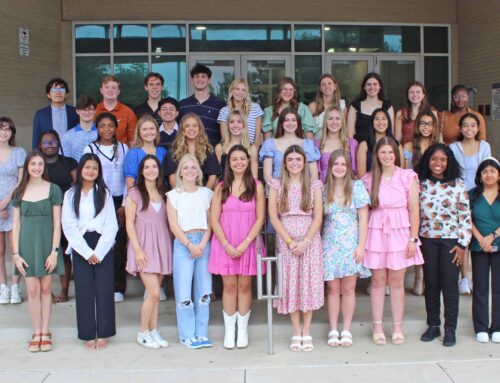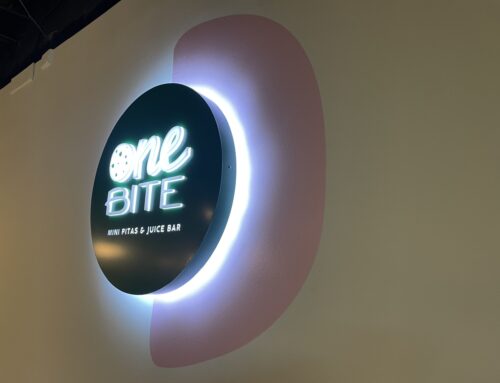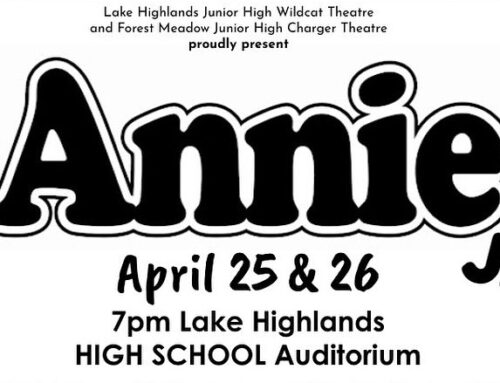When Lake Highlands resident Justin Bono was elected in May to his second 3-year term on the Richardson ISD school board, he became one of the district’s most experienced trustees. Only Kim Caston, elected in 2007, has served longer. Fellow trustees quickly voted to name Bono board president for the coming year.
Attending his swearing in ceremony were wife Debbie, daughter Molly and daughter Sadie. Today Molly begins 7th grade at Forest Meadow, and Sadie is a 3rd grader at Moss Haven.
I sat down with Bono, who works in the real estate industry, to learn how he’ll lead the district.
It seems voters in the past ten years have leaned toward electing trustees with children in RISD schools. Why is that?
I think a lot of that is just more young people – members of Exchange Club and Junior Women’s League, people with kids in school – becoming involved in the community. It’s just a natural evolution of who’s plugging in. I do think it’s helpful to have different stages of experience.
Will it help inform you as a board member to have a child in junior high?
Naturally we understand what we see, and I understood elementary education better than secondary, but I can tell you that I was intentional about visiting every junior high and every high school and was intentional about visiting special programing like the Christa McAuliffe Learning Center and the elementary magnets. I tried to think about ‘where are my strengths?’ and ‘what is my existing knowledge base?’ before I visited campuses.
What will change now that you are school board president?
This year I’ll focus on trying to get more efficient with our time within the board. We’ll move more of our detailed items into our study sessions so we can better dig into the details, and we’ll make sure those items relate to what we’re tasked to do as board members – policy issues, building the budget or items we’ll vote on in an upcoming meeting.
The district will launch a strategic planning effort, which the board will play a role in, with 50/50 participation by district folks and community stakeholders. Once the goals are formulated, action teams will be formed, and there will be interaction between the community and the district to build a plan, which we haven’t done in a while.
Is this strategic planning to handle RISD’s growth?
Everything. Growth, facilities, closing the achievement gap with economically disadvantaged students, improving athletics, teacher retention could all be components. Goals will come organically through the planning process. Fast forward 6-9 months and we hope to have a “north star” for each issue. It enables the district and the community to dream together about what we want the district to be, then lay the foundation of resources to make it happen. Then we get into the prioritization phase. We can’t do it all in one year.
RISD has new principals at LHJH and LHHS and there seems to be more diversity in campus leadership. Do you think it makes a difference to have diversity at the principal level?
Absolutely. I think it’s important to our board and I think it’s important to Dr. Stone. Having leadership on campuses that represents the student body is a positive thing.
It’s been a while since we had an African American serving on the school board – David Tyson served from 2004 to 2010 – and we had some discussion about single member districts during the 2016 school board race. Have any thoughts on that?
It’s an interesting discussion. I don’t know that single member districts would accomplish what proponents want or make a board more effective, just given how our district is laid out. Our board would welcome a more diverse pool of candidates and colleagues, and we’re focused on getting more diversity on strategic planning committees, diversity of backgrounds and geography as well, so that there is a greater pool of potential board candidates. Ultimately, it has to be the right time for any candidate to step into board service.
Teacher retention was also an issue in the school board race. What are you doing to keep good teachers?
We’ve been talking about that since I joined the board 3 years ago. We now have a mentoring program, so every teacher has someone to lean on, and we added some stipends to attract teachers to certain campuses. It’s something we’re focused on, but it’s not something unique to our district, and it’s not something we’re going to get to zero. Ten percent of teachers who leave are retiring, another 10% move out of state with their spouse or decide to stay home and care for a child or family member. Our teacher turnover rate is in the mid-teens, but it will always be 3-5% because of items like these. It’s higher than we want it, so we’re launching a district-wide salary study to see if our employees are paid competitively. We know our starting salary is competitive, but we want to know how our 8-year teacher compares with Allen, McKinney and Carrollton-Farmers Branch for example. I expect this data to be helpful in our strategic planning efforts this year, of which strategic planning will likely be a part.
Dallas Observer’s Jim Schutze recently wrote that “ostracism, rumor and personal attacks are the price of admission for political activity” for RISD elected officials. Do you agree?
Obviously all public servants would like to not be criticized, but I think we do understand people weighing in on our decisions and we hope that’s done in a respectful fashion that doesn’t turn ugly. We also understand social media and how that operates in the world we are in. I would hope we, as board members, could be respectful and receive that in return. I really try to dialogue with people – anyone who wants to have a call or a meeting, irrespective of if we share views in common. I’ve found personally that dialogue serves me well in taking away at least a tidbit of good information from each of those interactions.
Is it tough to see friends on both sides under attack during an election?
It’s like what’s going on in the state legislature right now. Because of personality clashes between the two bodies there, really good legislation is going to be left on the cutting room floor. Positive civil discourse always leaves you in a better place to accomplish what the public sends us there to do.
Does it affect whether you might run again for RISD or for another office?
I don’t know that it affects me but it is certainly a family consideration, especially with young kids – kids that are going to see comments online and digest things. My wife sees people at the grocery store, and she’s in the middle of all these issues and brings home questions from people. As that turns negative, your family is in the trenches with you, hearing what’s being said.
Do you have a desire to run for higher office?
Not really. It’s hard to do, and legislators don’t make any money. Now, I can have a full-time job and serve the school board and it’s all local.
I follow lots of RISD teachers and administrators on social media, and this summer my Twitter feed has lit up like a pinball machine with rah-rah messages from excited staff. Is there a new RISD strategy to get teachers on social media?
(laughing) Dr. Stone operates a lot in the Twittersphere, and I think naturally, by her sharing and congratulating some of our 5,000 employees on what they’re doing, that’s how social media works. There’s a multiplier effect. It’s contagious – she’s even got board members on there. There’s a positive aspect that’s pretty powerful.
The Dallas County Appraisal District recently reduced the value of the White Rock Trail property, purchased by RISD to handle growth in the White Rock Elementary feeder pattern, to $3 million (RISD paid $4.5 million). Does that mean the property is less valuable? Will the district lose money, now that the district is selling the property to add on to WRE instead?
I wouldn’t read a whole lot into that. We’ve had a few offers and our broker is in the process of negotiating. It wouldn’t be our desire to lose money, but hopefully we’ll get those contract negotiations to a point where we can make a decision.
What are you excited about for next year?
I’m excited about this strategic planning effort and getting the community involved in decision making. There are a lot great traditions in the district, but we’ve also changed a lot. We have over a thousand refugees, and 1 of every 4 students don’t speak English. Many of our biggest challenges weren’t here just a few years ago, so it’s a good time to step back and see where we want the district to go and set a road map to execute. It helps limit that one-off decision making – that, ‘well, let’s go try this and go try that.’
Michael Longanecker, RISD’s Director of Facilities, spoke to the City Plan Commission about the White Rock Elementary expansion recently and said RISD is still seeking to purchase land to build another elementary school. True?
Yes, we are working with a broker to locate a spot. We’ve made a few offers, but it’s been hard for us to compete with multi-family buyers paying top dollar for tracts right now. We’re still looking, and we have money from the 2016 bond to make that purchase. We have seen a bit of a tick down in yield [numbers of kids per apartment unit] as rents have gone up, so that may impact our projections, but as of now we plan to build a school. We’re also doing a facilities study – a capacity study – on every campus. We’ve been using some ‘older math’, so we’ll get third party data on every campus to compare against demographic numbers. The better data we have, the better decisions we can make. Lake Highlands isn’t the only area that’s growing.
And Lake Highlands seems to think so.
I don’t know that Lake Highlands thinks that, but we have had some challenging dialogue with the community – lots of differing opinions about managing growth and lots of challenges due to being landlocked. We don’t have a lot of options about where to put a school. There are a lot of great traditions in Lake Highlands where people have always gone to a certain school, and it’s hard to talk about redrawing boundaries when people make home decisions about what school their kids will go to.
After a time of challenging dialogue, such as the White Rock Elementary discussion, how do you bring the community together and move forward?
The more community involvement you can have, the better. In this case, the board was more involved in creating solutions than we should have been. We feel really good about where we are at White Rock, but in retrospect, the board is here to take actions on recommendations. We’re not supposed to be making the recommendations. Having more people involved and building consensus before it comes to us leads everyone to a better place.
Bono’s answers have been edited for brevity and clarity.






